Badia a Passignano Antinori Sangiovese Chianti Magnum Bottle 1,5 L. Origin.
Producer.
Name.
Antinori.
Variety.
Country of origin.
Appellation of origin.
(UE)401/2010 Certification.
Denominazione di Origine Controllata e Garantita (D.O.C.G.)
D.O.C.G. Chianti.
Production region.
The production region of D.O.C.G. Chianti is located in Las provincias de Arezzo, Firenze, Pisa, Pistoia, Prato y Siena, en la región de Toscana, Italia.
Weight.
2.000 gr. (2,0 Kg.).
EAN.
8001935063100
Producer |
|
Name |
Antinori. |
Variety |
|
Country of origin |
|
Appellation of origin |
|
(UE)401/2010 Certification |
Denominazione di Origine Controllata e Garantita (D.O.C.G.) |
Production region |
The production region of D.O.C.G. Chianti is located in Las provincias de Arezzo, Firenze, Pisa, Pistoia, Prato y Siena, en la región de Toscana, Italia. |
Weight |
2.000 gr. (2,0 Kg.). |
EAN |
8001935063100 |
Badia a Passignano Antinori Sangiovese Chianti Magnum Bottle 1,5 L. Data sheet.
Typology.
Variety.
Vintage / Harvest.
Format.
Magnum Bottle.
Capacity.
1,5 L.
Alcohol content.
14% Vol.
Weight.
2.000 gr. (2,0 Kg.).
Visual tasting note.
Dark, Opaque, Dark cherry background.
Olfactory tasting note.
Fine woods, Expressive, Notes of ripe red fruit, Spicy background.
Tasting note.
Cool blast, Mineral touch, Excellent depth.
Recommended pairing.
Green peas, Seafood with garlic, Raw beaf.
Consumption temperature.
16ºC - 18ºC.
Consumption.
It is recommended to drink in moderation and demonstrate a responsible consumption of alcoholic beverages.
Special Format.
Magnum Bottle.
Typology |
|
Variety |
|
Vintage / Harvest |
Currently marketed by the producer. |
Format |
Magnum Bottle. |
Capacity |
1,5 L. |
Alcohol content |
14% Vol. |
Weight |
2.000 gr. (2,0 Kg.). |
Visual tasting note |
Dark, Opaque, Dark cherry background. |
Olfactory tasting note |
Fine woods, Expressive, Notes of ripe red fruit, Spicy background. |
Tasting note |
Cool blast, Mineral touch, Excellent depth. |
Recommended pairing |
Green peas, Seafood with garlic, Raw beaf. |
Consumption temperature |
16ºC - 18ºC. |
Consumption |
It is recommended to drink in moderation and demonstrate a responsible consumption of alcoholic beverages. |
Special Format |
Magnum Bottle. |
Badia a Passignano Antinori Sangiovese Chianti Magnum Bottle 1,5 L. Description.
Comments.
44 Customer reviews.
Customers rating.
Product reference.
WAN4570974
EAN.
8001935063100
Accessories.
This product is provided in the conditions and format in which it is marketed at the current time. In cases where the product includes an additional packaging, box and/or case, These accessories will be included in the shipment as long as they comply with the dimensions of the special packaging adapted and approved for the transport of beverages.
In general, the images of the products that we publish on our website are only relevant for graphic purposes. The images do not show other accessories such as additional packaging (box, case, etc.) or promotional elements that may occasionally be included by the manufacturer along with the product. If you wish, we can inform you about the additional packaging, elements and accessories included with the product at the current time.
Weight.
2.000 gr. (2,0 Kg.).
Regular price.
117,72 € -10% reduction for a limited time!
Actual price.
105,95 €
Minimum order quantity.
1 Unit.
Shipping deadline.
 Spain: 4,90 € (Up to 10Kg/6 bottles)
Spain: 4,90 € (Up to 10Kg/6 bottles)
Delivery term: Information and prices.
Storage position.
Lateral position, horizontal bottle.
Storage temperature.
Store at a constant temperature between 10-17ºC.
Humidity should be constant around 60-80%.
Recommendations.
Keep preferably away from light.
Comments |
44 Customer reviews. |
Customers rating |
|
Product reference |
WAN4570974 |
EAN |
8001935063100 |
Accessories |
This product is provided in the conditions and format in which it is marketed at the current time. In cases where the product includes an additional packaging, box and/or case, These accessories will be included in the shipment as long as they comply with the dimensions of the special packaging adapted and approved for the transport of beverages. |
Weight |
2.000 gr. (2,0 Kg.). |
Regular price |
117,72 € -10% reduction for a limited time! |
Actual price |
105,95 € |
Minimum order quantity |
1 Unit. |
Shipping deadline |
|
Storage position |
Lateral position, horizontal bottle. |
Storage temperature |
Store at a constant temperature between 10-17ºC. |
Recommendations |
Keep preferably away from light. |
Badia a Passignano Antinori Sangiovese Chianti Magnum Bottle 1,5 L. Legal notice.
Please keep in mind.
The information provided and referred to the product features and details has been provided by the expert, manufacturer or producer or published on the official sites. In no case can it be considered as assessment made by our team, unless expressly stated otherwise.
We suggest you to refer to the comments and reviews posted by our customers and users to expand and contrast this information.
Misreading.
Our team provides this information and details in ESPAÑOL language.
If you browse in another language note that the information contained may have been translated from the original language through an automated real-time process that has not been supervised by our human team.
In case of doubt, misunderstanding or misreading about the content of this information you should refer to the original version of this page or contact our customer service team.
Product image.
The product image or its label is only relevant for graphic purposes, so it may not match the identification of the vintage or other features and details of the product for sale. This product is provided in the conditions and format in which it is marketed at the current time.
This product is not identified or supplied in a specific vintage. The product image and label may not match the vintage identification or other characteristics and details of the product for sale.
Accessories.
This product is provided in the conditions and format in which it is marketed at the current time. In cases where the product includes an additional packaging, box and/or case, These accessories will be included in the shipment as long as they comply with the dimensions of the special packaging adapted and approved for the transport of beverages.
In general, the images of the products that we publish on our website are only relevant for graphic purposes. The images do not show other accessories such as additional packaging (box, case, etc.) or promotional elements that may occasionally be included by the manufacturer along with the product. If you wish, we can inform you about the additional packaging, elements and accessories included with the product at the current time.
Country of origin.
Spain. This product is shipped from Spain.
Legal Notice.
It is against the law to sell or supply alcohol to, or to obtain alcohol on behalf of a person under the age of 18 years.
If you are not more than 18 years old, you must leave this website.
Shipping deadline.
 Spain: 4,90 € (Up to 10Kg/6 bottles)
Spain: 4,90 € (Up to 10Kg/6 bottles)
Delivery term: Information and prices.
Return policy.
Return policy.
Last update: Wednesday, 21 May 2025
For further information: Terms and conditions of the service.
Please keep in mind |
The information provided and referred to the product features and details has been provided by the expert, manufacturer or producer or published on the official sites. In no case can it be considered as assessment made by our team, unless expressly stated otherwise. |
Misreading |
Our team provides this information and details in ESPAÑOL language. |
Product image |
The product image or its label is only relevant for graphic purposes, so it may not match the identification of the vintage or other features and details of the product for sale. This product is provided in the conditions and format in which it is marketed at the current time. |
Accessories |
This product is provided in the conditions and format in which it is marketed at the current time. In cases where the product includes an additional packaging, box and/or case, These accessories will be included in the shipment as long as they comply with the dimensions of the special packaging adapted and approved for the transport of beverages. |
Country of origin |
Spain. This product is shipped from Spain. |
Legal Notice |
It is against the law to sell or supply alcohol to, or to obtain alcohol on behalf of a person under the age of 18 years. |
Shipping deadline |
|
Return policy |
Return policy. |
44 Reviews of customers and website users. ( During the last 90 days )
Badia a Passignano Antinori Sangiovese Chianti Magnum Bottle 1,5 L.
Additional information.
«Badia a Passignano Antinori Chianti» is produced by Badia a Passignano. «Badia a Passignano Antinori Chianti» is monovarietal, made only with the grape variety Sangiovese, 100% Sangiovese. «Badia a Passignano Antinori Chianti» is a product from Italy. It is certified with D.O.C.G. Chianti. The production region of D.O.C.G. Chianti is located in Las provincias de Arezzo, Firenze, Pisa, Pistoia, Prato y Siena, en la región de Toscana, Italia. The weight of «Badia a Passignano Antinori Chianti» is 2.000 grams (2,0 Kg.). «Badia a Passignano Antinori Chianti» is identified and marketed with the barcode EAN 8001935063100.
«Badia a Passignano Antinori Chianti» belongs to the Red wine category, Red wine Appellation of origin D.O.C.G. Chianti. «Badia a Passignano Antinori Chianti» is monovarietal, made only with the grape variety Sangiovese, 100% Sangiovese. This product is not identified or supplied in a specific vintage. The product image and label may not match the vintage identification or other characteristics and details of the product for sale. If you wish, we can provide you with this information, and, of course, You can request a specific vintage and we will try our best to satisfy you. «Badia a Passignano Antinori Chianti» is marketed in magnum bottle 1,5 L format. The alcohol content of «Badia a Passignano Antinori Chianti» is 14% Vol. The weight of «Badia a Passignano Antinori Chianti» is 2.000 grams (2,0 Kg.). Regarding the tasting of «Badia a Passignano Antinori Chianti», the notes dark, opaque and dark cherry background stand out in its visual phase. Among the predominant notes of the olfactory tasting are fine woods, expressive, notes of ripe red fruit and spicy background. Finally, The tasting of «Badia a Passignano Antinori Chianti» in the taste phase stands out with cool blast, mineral touch and excellent depth. It is recommended to pair «Badia a Passignano Antinori Chianti» with green peas, seafood with garlic and raw beaf. The optimum temperature to consume «Badia a Passignano Antinori Chianti» is 16ºC - 18ºC.
A total of 44 valuations have been made about «Badia a Passignano Antinori Chianti» in PrivateCeller.com. Consumers and users from PrivateCeller.com rated «Badia a Passignano Antinori Chianti» with an average score of 4.89 out of 5. «Badia a Passignano Antinori Chianti» is identified and marketed with the barcode EAN 8001935063100. The weight of «Badia a Passignano Antinori Chianti» is 2.000 grams (2,0 Kg.). Currently PrivateCeller.com offers «Badia a Passignano Antinori Chianti» with a 10% discount for a limited time. The final sale price of «Badia a Passignano Antinori Chianti» is 105,95 € in PrivateCeller.com.
The information provided and referred to the product features and details has been provided by the expert, manufacturer or producer or published on the official sites. In no case can it be considered as assessment made by our team, unless expressly stated otherwise. We suggest you to refer to the comments and reviews posted by our customers and users to expand and contrast this information. The product image or its label is only relevant for graphic purposes, so it may not match the identification of the vintage or other features and details of the product for sale. This product is provided in the conditions and format in which it is marketed at the current time. Spain. This product is shipped from Spain.
Appellation of origin:
D.O.C.G. Chianti.
Badia a Passignano Antinori Sangiovese Chianti Magnum Bottle 1,5 L.
 Español [ ES ]
Español [ ES ]Zona vinícola y DOCG.
Aunque la primera referencia al Chianti como vino producido en la Toscana, data de 1398, no fue hasta 1716, bajo el último de los Medici, que se definió un territorio vitivinícola que se llamaría Chianti. Cubría las áreas alrededor de los pueblos de Gaiole in Chianti, Castellina in Chianti y Radda in Chianti, que comprendía la histórica Lega del Chianti y más tarde la Provincia del Chianti. En 1932, el área de Chianti fue completamente rediseñada por decreto ministerial. El nuevo Chianti era un área mucho más grande dividida en siete zonas: Classico , Colli Aretini , Colli Fiorentini , Colline Pisane , Colli Senesi , Montalbano y Rùfina. La antigua área de Chianti era, por lo tanto, solo una pequeña parte de la zona de Classico, el área original descrita en 1716 era aproximadamente el 15% de la zona de Classico y aproximadamente el 6% de la nueva área de área de vino de Chianti. Muchas de las aldeas que en 1932 se encontraron repentinamente en la nueva área de Chianti Classico de inmediato o más tarde agregaron "in Chianti" a su nombre. El más reciente fue Greve, que se convirtió en Greve in Chianti en 1972. DOCG significa Denominazione di origine controllata e Garantita, " identificación de origen comprobada y garantizada ". Esta designación se introdujo cuando se hizo evidente que la designación DOC se estaba usando sin demasiado control, libremente. Los vinos con etiqueta DOCG son analizados y degustados por inspectores autorizados por el gobierno antes de ser embotellados. Para evitar una manipulación posterior, las botellas de vino DOCG se sellan con un sello gubernamental numerado en la tapa o el corcho. Esto ofrece una garantía bastante buena de que el vino en la botella es lo que dice en la etiqueta, particularmente que proviene del área especificada. Dependiendo del área donde se produce Chianti, el vino toma un nombre diferente. De hecho, desde la antigüedad, todo el vino producido en la campiña toscana entre Arezzo, Pisa, Florencia, Siena y Prato, asumen indiferentemente el nombre de "Chianti", con la introducción en el siglo XIX de la Denominación de Origen Controlada, comenzó un proceso para proteger el vino Chianti para preservar sus características y protegerlo de posibles fraudes. Proceso que fue aún más refinado en 1867 con la introducción de la Denominación de Origen Controlada y Garantizada.
Los vinos y sus uvas.
Hoy el nombre "Chianti" es una garantía de vino noble, producido de acuerdo con leyes estrictas que protegen el estándar de calidad y con él las características sensoriales. Chianti Docg se produce en el corazón de la Toscana, en el área entre las provincias de Arezzo, Florencia, Pisa, Pistoia, Prato y Siena. Estos son territorios montañosos con grandes terrazas y valles cruzados por ríos. Este territorio ha producido vino desde la época de los etruscos, pero solo en 1800 obtuvo la Denominación de Origen Controlada, DOC. Cuando se introdujo la Denominación de Origen Controlado y Garantizado, DOCG, en 1967, la denominación Chianti se integró con los cultivos específicos: Colli Aretini, Colli Fiorentini, Colli Senesi, Colinas pisanas, Montalbano, Rufina, Montespertoli. Cada uno se produce en una subárea de producción específica y cada uno está regulado por una especificación diferente. Chianti Classico, por otro lado, es muy diferente de Chianti y sus subzonas y es una denominación DOCG separada y está sujeto a una especificación más rígida que regula estrictamente su producción. Todos los vinos de Chianti están compuestos por las mismas viñas: Sangiovese, Canaiolo, Trebbiano, Malvasía blanca, Sauvignon y Merlot. El porcentaje de uvas, sin embargo, puede cambiar de vino a vino. El protagonista indiscutible, sin embargo, es siempre Sangiovese, que se puede vinificar solo o en cantidades variables hasta un mínimo del 75%. Chianti tiene un color rojo rubí que tiende al granate con un envejecimiento, un sabor armonioso, seco y ligeramente tánico, olor a vino con toques de violetas. El Chianti se puede beber joven o envejecido.
Vinificación.
En las fases de vinificación, solo las prácticas enológicas justas y constantes en la zona son adecuadas para dar a los vinos sus características de calidad peculiares. Las prácticas de vinificación del vino DOCG Chianti proporcionan, entre otras cosas, que el rendimiento máximo de uvas en el vino DOCG Chianti no debe exceder el 70%; Si se superan estos parámetros dentro del límite del 5%, el excedente no puede tener derecho al DOCG. Más allá de estos límites, caduca el derecho a DOCG para todo el producto. La denominación Chianti de vino de origen controlado y garantizado, también con referencia a las subáreas, puede tener derecho a la mención Riserva si se somete a envejecimiento durante al menos 2 años. Para vinos con una denominación de origen Chianti controlada y garantizada con referencias a las subáreas «Colli Fiorentini» y «Rufina», la crianza prevista para tener derecho a la mención Riserva debe llevarse a cabo durante al menos seis meses en barriles de madera. Para el vino Chianti con referencia a la subzona "Colli Senesi", la crianza que se espera tenga derecho a la mención Riserva debe llevarse a cabo durante al menos 8 meses en barriles de madera con posterior refinamiento en la botella durante al menos 4 meses. En la designación de DOCG Chianti Wines, el término " Vigna " puede mencionarse siempre que sea seguido por el topónimo relativo y que se respeten ciertas prácticas de vinificación. En las etiquetas de cada tipo de vino Chianti DOCG es obligatorio informar el año de producción de las uvas.
Historia y literatura del vino Chianti.
El gran desarrollo de la viticultura tuvo lugar con el advenimiento de la familia Medici. Ya en la segunda mitad de la década de 1400, Lorenzo dei Medici, en el Simposio y en la Canción de Baco, ilustra una atmósfera popular, donde el vino es la esencia de un teatro de ingenio y banalidad, hasta el límite grotesco. Por lo tanto, era el vino para los Medici, comerciantes y banqueros, un bien y un regalo, era comida, bienes y símbolo. Se dice que el vino favorito en la casa de los Medici fue el producido en el área de Chianti. El vínculo que une la dinastía Medici con la ciencia del vino o más simplemente con el vino está cerca. No es casualidad que en el siglo XVI el Palazzo Vecchio fue reconstruido en honor a los Medici, las columnas estaban adornadas con pampani, ramas y uvas, que aún se pueden admirar en el patio del palacio. Los Medici eran señores de Florencia, del campo y, desde el siglo XVI, eran grandes duques de la Toscana. Por lo tanto, es natural que uno de los productos más reconocidos de la región se convierta en una cura para el mundo de la política. Solo en el siglo XVII, con la intensificación de las ventas y exportaciones, el nombre de la región será universalmente reconocido también por el famoso producto de este territorio. En septiembre de 1716, los "señores diputados más ilustres de la nueva congregación sobre el comercio del vino" establecieron los términos del comercio dentro y fuera de "los Estados de Su Alteza Real", formulando, sin saberlo, la primera disciplina real del "Chianti", decidiendo ordenar el establecimiento de una congregación especial, con la tarea de asegurar que los vinos toscanos comprometidos con la navegación, recibieran una garantía para una mayor seguridad de su calidad. En 1870, Ricasoli escribió al profesor Studiati de la Universidad de Pisa: “el vino recibe de Sangioveto la dosis principal de su perfume y una cierta sensación de vigor; de Canaiolo la amabilidad que endurece la dureza del primero sin quitarle su perfume para ser dotado de él; La malvasía tiende a diluir el producto de las dos primeras uvas, aumenta su sabor y lo hace más liviano y más fácil de usar para el uso diario ". El vino DOC Chianti obtuvo el reconocimiento de la Denominación de Origen Controlada el 9 de agosto de 1967, luego el DOCG el 2 de julio de 1984.
Red wine D.O.C.G. Chianti
Product Selection Red wine D.O.C.G. Chianti.
Badia a Passignano Antinori Sangiovese Chianti Magnum Bottle 1,5 L.
Variety:
Sangiovese.
Badia a Passignano Antinori Sangiovese Chianti Magnum Bottle 1,5 L.
 Español [ ES ]
Español [ ES ]Origen.
Se sospecha que la variedad sangiovese fue la usada para la elaboración del vino romano. Hay autores que afirman que los etruscos tomaron esta vid cuando era salvaje para cultivarla por primera vez, poniendo los primeros viñedos en la Toscana. La sangiovese es una uva tinta, cuyo nombre tiene su origen en el latín "Sanguis Jovis", que significa sangre de Júpiter en referencia al dios romano Júpiter. Existe una leyenda que atribuyen el nombre a los monjes de la localidad de Santarcangelo di Romagna, lo que hoy en día es la provincia de Rímini, en la región de Emilia-Romaña, Italia. El primer documento, que hace referencia a esta uva, del que se tienen noticias es un escrito fechado en 1590, cuya autoría se atribuye a Giovanvettorio Soderini (también conocido con el seudónimo de Ciriegiulo). Soderini llama a la uva sangiogheto, y dice que esta uva de la Toscana produce vinos muy buenos, pero, si los productores no tienen cuidado, este se puede avinagrar. Aunque no se puede afirmar con total rotundidad que ambas uvas sean la misma, muchos estudiosos del vino consideran que es la primera mención a esta variedad. En 1738, Cosimo Trinci describió a los vinos de sangiovese como excelentes cuando se integraba en vinos multivarietales pero duramente ácidos cuando se trata de vinos monovarietales. En el siglo XVIII la sangiovese comienza a tomar nombre y popularidad debido a su expansión por la Toscana, llegando a convertirse en una de las variedades más cultivadas en la zona, junto con la malvasía y la trebbiano. En la década de los setenta, los viticultores de la Toscana introdujeron nuevas técnicas de elaboración, mezclando variedades de uva de fuera de Italia, como la cabernet Sauvignon, envejeciendo los caldos en barricas de roble, creando de este modo vinos que fueron etiquetados comercialmente como Súper Toscanos.
Características.
Existen alrededor de 14 variedades de uva Sangiovese, siendo la Brunello y la Prugnolo Gentile, que son uvas que crecen mejor en alturas bajas porque la piel tarda más tiempo en madurar, las más famosas. Las uvas son violetas, gruesas de piel, extremadamente ácidas y de contenido tánico moderado o alto, dependiendo del clon. Se desarrollarán en todo su esplendor en suelos calizos con climas cálidos y secos. Las vides suelen ser muy resistentes a las enfermedades, pero las bayas se pudren muy fácilmente. Las uvas Sangiovese son violetas, de piel gruesa, muy ácidas, de contenido tánico moderado o alto. Su maduración es tardía. Aportan aromas frutales, florales y especiados al vino, aunque éstos pueden ser fácilmente opacados en los blends tintos si las uvas utilizadas no son de la mejor calidad. Esta variedad es muy afín al suelo calizo y a climas cálidos y secos. En estas condiciones, sus características varietales se desarrollan en toda su plenitud. Es una uva de buena calidad y apreciada por su alto contenido de ácido, taninos firmes y naturaleza equilibrada. Son característicos los sabores salados de cerezas oscuras y fruta de hueso negra que pueden estar respaldados por notas secundarias de hojas de tomate y hierbas secas. Si el vino es joven puede tener un acabado algo amargo. El uso del roble se ha vuelto más popular y esto culmina hacia los sabores más ricos de las uvas, tendiendo hacia la ciruela y la frambuesa silvestre. Las sinonimias de la uva Sangiovese son, Nielluccio, Sangioveto, Sangiovese Grosso, Sangiovese Piccolo, Brunello, Prugnolo Gentile, Morellino.
Zonas de cultivo.
Se pueden encontrar viñedos de sangiovese en cualquier parte del mundo, no obstante, la tierra natal de esta uva es Italia, que es además su principal productor, sobre todo en la Toscana. La variedad de uva sangiovese también está implantada en otras zonas de Italia como Lacio, Umbría, Marche y también en Corcega. Los italianos emigrados al continente americano plantaron viñedos de esta variedad, tanto en Norteamérica como en Sudamérica, siendo los principales ejemplos de esta expansión las zonas de California en EE. UU. y Mendoza en Argentina. También se pueden encontrar viñedos de sangiovese en Francia, Chile, Brasil, Sudáfrica y Australia.
Vinos.
Todos los clones de Sangiovese tienen una maduración relativamente lenta, lo que resulta en una temporada de crecimiento extendida y en vinos más ricos, fuertes y de mayor duración que los elaborados a partir de variedades de maduración temprana. Cuando se anima a las vides a producir mayores rendimientos, la acidez naturalmente alta del vino se acentúa y su color característico se diluye notablemente. Se experimentan dificultades adicionales debido a la fina capa de la uva, que la hace susceptible a la putrefacción en condiciones húmedas. Hay grandes vinos hechos con Sangiovese, como el chianti, rosso di Montalcino, Montepulciano o el brunello. Los vinos elaborados con Sangiovese pueden envejecer bien, pero gran parte de ellos están pensados para beberse 1 o 2 años después de la cosecha. Los más longevos de buena añada se puede guardar hasta 20 años. Las características aromáticas de la sangiovese varían mucho según el lugar donde crezca. Los brunellos se caracterizan por los frutos rojos: grosellas, fresas, frambuesas, mermeladas, compota de frutas...; por los perfumes florales: violetas, gladiolos...; por los aromas terrosos: monte bajo, setas...; y por los aromas terciarios: especias, tabaco, alquitrán, ahumados, barnices (en algunas ocasiones los encontramos y provienen de la crianza en "botti", grandes botas de roble, en general usadas). Los chiantis, por su parte, nos presentan una gama aromática variada: cerezas amargas, frutos rojos maduros, mermeladas, compota de frutas, violetas, gladiolos, herbáceos (heno recién cortado)... El vino nobile di Montepulciano nos presenta también frutos rojos, además de aromas terrosos (hongos Boletus edulis , trufa, sotobosque), flores (violetas), frutos secos (almendras)... En Carmignano destacan la vinosidad, las flores marchitas y los frutillos rojos.
Red wine Sangiovese
Product Selection Red wine Sangiovese.
Badia a Passignano Antinori Sangiovese Chianti Magnum Bottle 1,5 L.
Data sheet.
Badia a Passignano Antinori Sangiovese Chianti Magnum Bottle 1,5 L.
Red wine. Badia a Passignano. Antinori. D.O.C.G. Chianti. Italy. Sangiovese. Magnum Bottle. 1,5 L..
Variety.
Country of origin.
Appellation of origin.
Vintage / Harvest.
Format.
Magnum Bottle.
Capacity.
1,5 L.
Alcohol content.
14% Vol.
Visual tasting note.
Dark, Opaque, Dark cherry background.
Olfactory tasting note.
Fine woods, Expressive, Notes of ripe red fruit, Spicy background.
Tasting note.
Cool blast, Mineral touch, Excellent depth.
Recommended pairing.
Green peas, Seafood with garlic, Raw beaf.
Consumption temperature.
16ºC - 18ºC.
Special Format.
Magnum Bottle.
Typology.
Producer.
Name.
Antinori.
Weight.
2.000 gr. (2,0 Kg.).
EAN.
8001935063100
Comments.
44 Customer reviews.
Customers rating.
Product reference.
WAN4570974
Regular price.
117,72 € -10% reduction for a limited time!
Actual price.
105,95 €
Minimum order quantity.
1 Unit.
Shipping deadline.
 Spain: 4,90 € (Up to 10Kg/6 bottles)
Spain: 4,90 € (Up to 10Kg/6 bottles)
Delivery term: Information and prices.
Please keep in mind.
The information provided and referred to the product features and details has been provided by the expert, manufacturer or producer or published on the official sites. In no case can it be considered as assessment made by our team, unless expressly stated otherwise.
We suggest you to refer to the comments and reviews posted by our customers and users to expand and contrast this information.
Misreading.
Our team provides this information and details in ESPAÑOL language.
If you browse in another language note that the information contained may have been translated from the original language through an automated real-time process that has not been supervised by our human team.
In case of doubt, misunderstanding or misreading about the content of this information you should refer to the original version of this page or contact our customer service team.
Product image.
The product image or its label is only relevant for graphic purposes, so it may not match the identification of the vintage or other features and details of the product for sale. This product is provided in the conditions and format in which it is marketed at the current time.
This product is not identified or supplied in a specific vintage. The product image and label may not match the vintage identification or other characteristics and details of the product for sale.
Return policy.
Return policy.
Last update: Wednesday, 21 May 2025
For further information: Terms and conditions of the service.
Country of origin.
Spain. This product is shipped from Spain.
(UE)401/2010 Certification.
Denominazione di Origine Controllata e Garantita (D.O.C.G.)
D.O.C.G. Chianti.
Production region.
The production region of D.O.C.G. Chianti is located in Las provincias de Arezzo, Firenze, Pisa, Pistoia, Prato y Siena, en la región de Toscana, Italia.
Storage position.
Lateral position, horizontal bottle.
Storage temperature.
Store at a constant temperature between 10-17ºC.
Humidity should be constant around 60-80%.
Recommendations.
Keep preferably away from light.
Accessories.
This product is provided in the conditions and format in which it is marketed at the current time. In cases where the product includes an additional packaging, box and/or case, These accessories will be included in the shipment as long as they comply with the dimensions of the special packaging adapted and approved for the transport of beverages.
In general, the images of the products that we publish on our website are only relevant for graphic purposes. The images do not show other accessories such as additional packaging (box, case, etc.) or promotional elements that may occasionally be included by the manufacturer along with the product. If you wish, we can inform you about the additional packaging, elements and accessories included with the product at the current time.
Legal Notice.
It is against the law to sell or supply alcohol to, or to obtain alcohol on behalf of a person under the age of 18 years.
If you are not more than 18 years old, you must leave this website.
Consumption.
It is recommended to drink in moderation and demonstrate a responsible consumption of alcoholic beverages.
Variety |
|
Country of origin |
|
Appellation of origin |
|
Vintage / Harvest |
Currently marketed by the producer.
|
Format |
Magnum Bottle. |
Capacity |
1,5 L. |
Alcohol content |
14% Vol. |
Visual tasting note |
Dark, Opaque, Dark cherry background. |
Olfactory tasting note |
Fine woods, Expressive, Notes of ripe red fruit, Spicy background. |
Tasting note |
Cool blast, Mineral touch, Excellent depth. |
Recommended pairing |
Green peas, Seafood with garlic, Raw beaf. |
Consumption temperature |
16ºC - 18ºC. |
Special Format |
Magnum Bottle. |
Typology |
|
Producer |
|
Name |
Antinori. |
Weight |
2.000 gr. (2,0 Kg.). |
EAN |
8001935063100 |
Comments |
44 Customer reviews. |
Customers rating |
|
Product reference |
WAN4570974 |
Regular price |
117,72 € -10% reduction for a limited time! |
Actual price |
105,95 € |
Minimum order quantity |
1 Unit. |
Shipping deadline |
|
Please keep in mind |
The information provided and referred to the product features and details has been provided by the expert, manufacturer or producer or published on the official sites. In no case can it be considered as assessment made by our team, unless expressly stated otherwise. |
Misreading |
Our team provides this information and details in ESPAÑOL language. |
Product image |
The product image or its label is only relevant for graphic purposes, so it may not match the identification of the vintage or other features and details of the product for sale. This product is provided in the conditions and format in which it is marketed at the current time. |
Return policy |
Return policy. |
Country of origin |
Spain. This product is shipped from Spain. |
(UE)401/2010 Certification |
Denominazione di Origine Controllata e Garantita (D.O.C.G.) |
Production region |
The production region of D.O.C.G. Chianti is located in Las provincias de Arezzo, Firenze, Pisa, Pistoia, Prato y Siena, en la región de Toscana, Italia. |
Storage position |
Lateral position, horizontal bottle. |
Storage temperature |
Store at a constant temperature between 10-17ºC. |
Recommendations |
Keep preferably away from light. |
Accessories |
This product is provided in the conditions and format in which it is marketed at the current time. In cases where the product includes an additional packaging, box and/or case, These accessories will be included in the shipment as long as they comply with the dimensions of the special packaging adapted and approved for the transport of beverages. |
Legal Notice |
It is against the law to sell or supply alcohol to, or to obtain alcohol on behalf of a person under the age of 18 years. |
Consumption |
It is recommended to drink in moderation and demonstrate a responsible consumption of alcoholic beverages. |

 Italy
Italy France
France Argentina
Argentina United States
United States Australia
Australia Portugal
Portugal Chile
Chile New Zealand
New Zealand South Africa
South Africa





 Germany
Germany Austria
Austria




 Tokaj-Hegyalja
Tokaj-Hegyalja
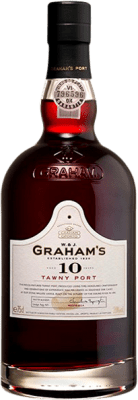








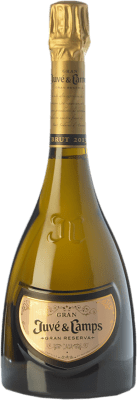
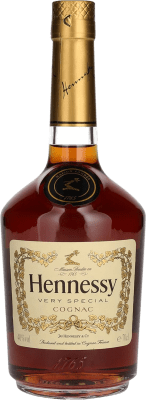


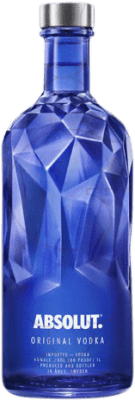


 Français
Français
 Deutsch
Deutsch
 Italiano
Italiano
 Português
Português
 中文
中文
 Русский
Русский
 日本語
日本語
 Belgium
Belgium
 Bulgaria
Bulgaria
 Croatia
Croatia
 Cyprus
Cyprus
 Czech Republic
Czech Republic
 Denmark
Denmark
 Estonia
Estonia
 Finland
Finland
 Greece
Greece
 Ireland
Ireland
 Latvia
Latvia
 Liechtenstein
Liechtenstein
 Lithuania
Lithuania
 Luxembourg
Luxembourg
 Monaco
Monaco
 Netherlands
Netherlands
 Norway
Norway
 Poland
Poland
 Romania
Romania
 San Marino
San Marino
 Slovakia
Slovakia
 Slovenia
Slovenia
 Spain, Balearic Islands
Spain, Balearic Islands
 Spain, Canary Islands
Spain, Canary Islands
 Sweden
Sweden
 Switzerland
Switzerland
 United Kingdom
United Kingdom

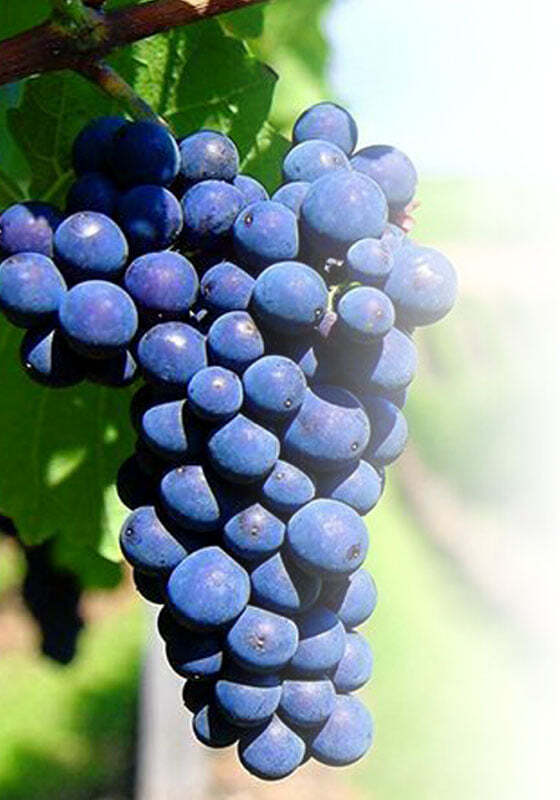
 EUR, Final price!
EUR, Final price!





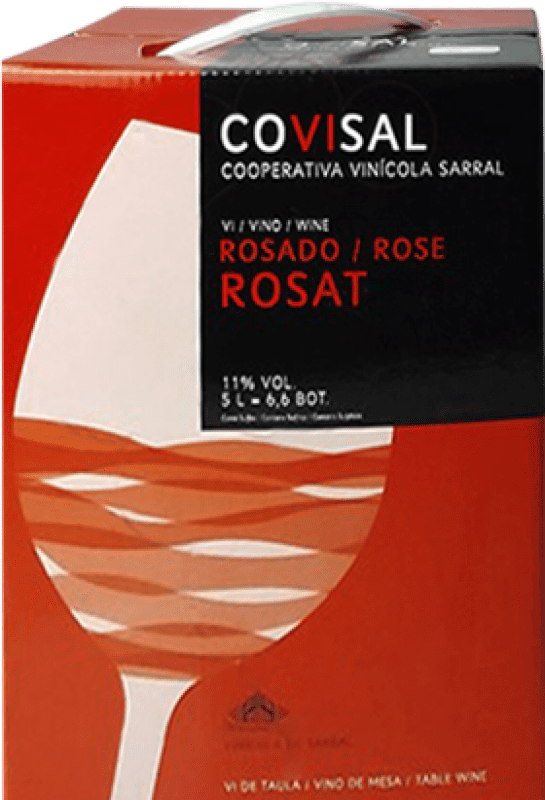







Este Vino Tinto es una joya auténtica
No puedo esperar para pedir un poco más. Muy afable
Muy buena relación calidad-precio. Botella muy agradable. Muy bueno
Un vino tinto para regalar y quedar muy bien
Increíble producto que aconsejo para hacer regalos
Sin estridencias
Exquisito, fino,elegante: ¿Qué más se puede pedir?
Un clásico con carácter
Te atrapa con una estructura clara, profundidad y potencia, dejando atrás otros más costosos.
En general, es maravilloso
Muy buena idea. Un vino tinto con un buen envoltorio
Extraordinario y vistoso para regalar
Recomendable tanto por el buen precio como por la vistosidad de su botella
Tradicional.
Ligeramente oxidado, pero aún muy fresco, increíble, excelente relación calidad-precio y excelente con la comida. Compraré de nuevo.
Mucha personalidad y muy fácil de beber. Recomendable 100%
Nunca se equivoca uno. Mantienen el listón alto
Bien hecho
Después de haber recibido este pedazo de regalo, no tengo palabras de agradecimiento
Buen producto.
Un producto de alta calidad, ligero y equilibrado. Notas muy pronunciadas.
Bien hecho. Bonita etiqueta
Mi opinión es que sigue siendo un Vino Tinto muy rico, totalmente aconsejable